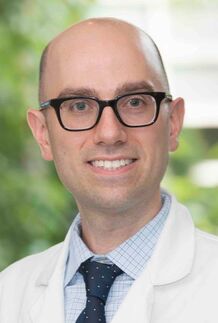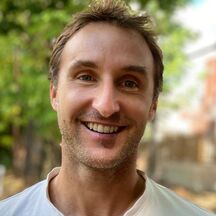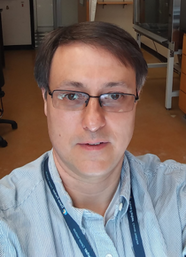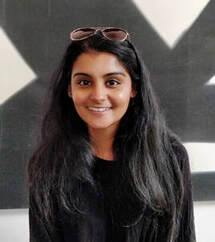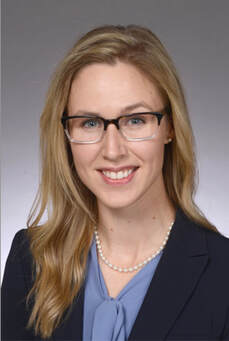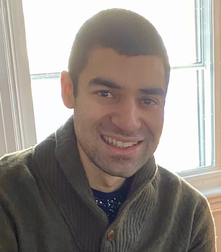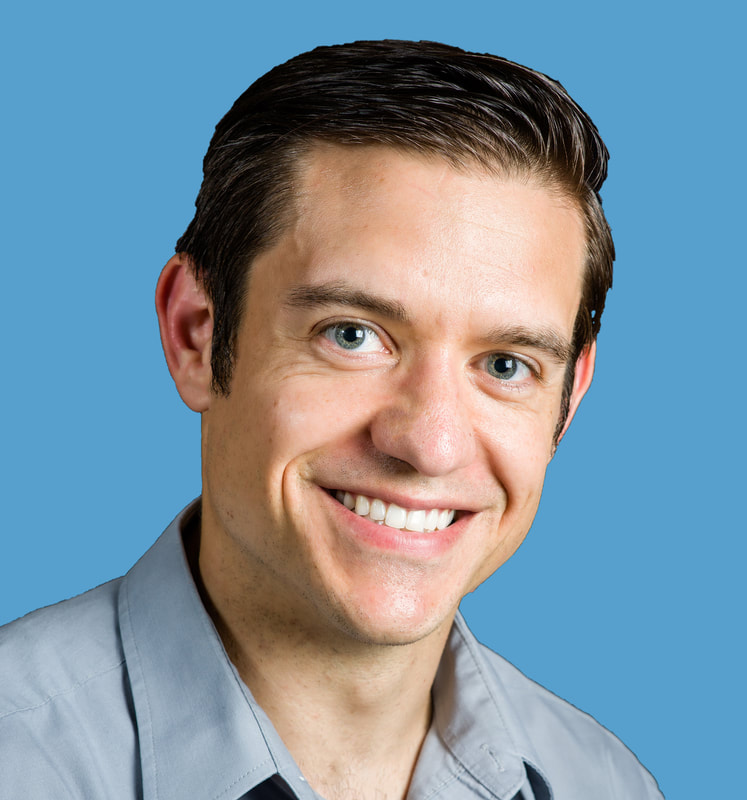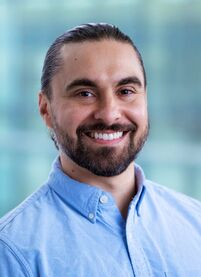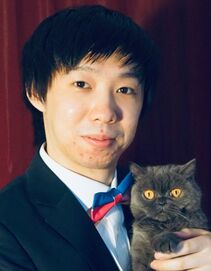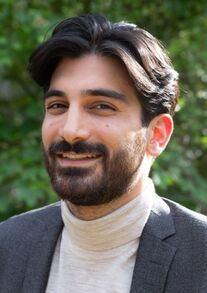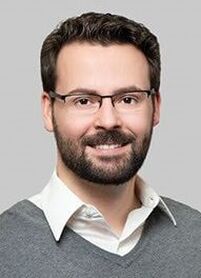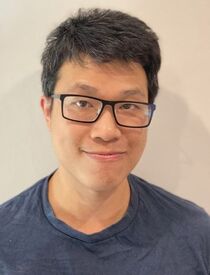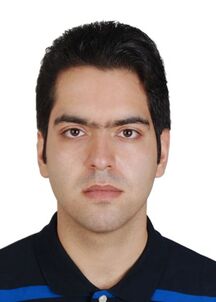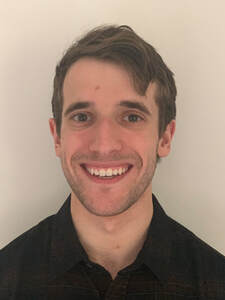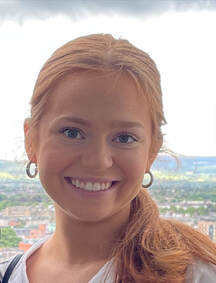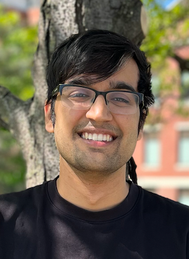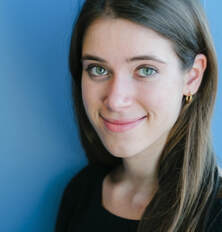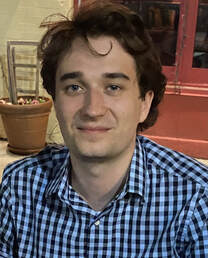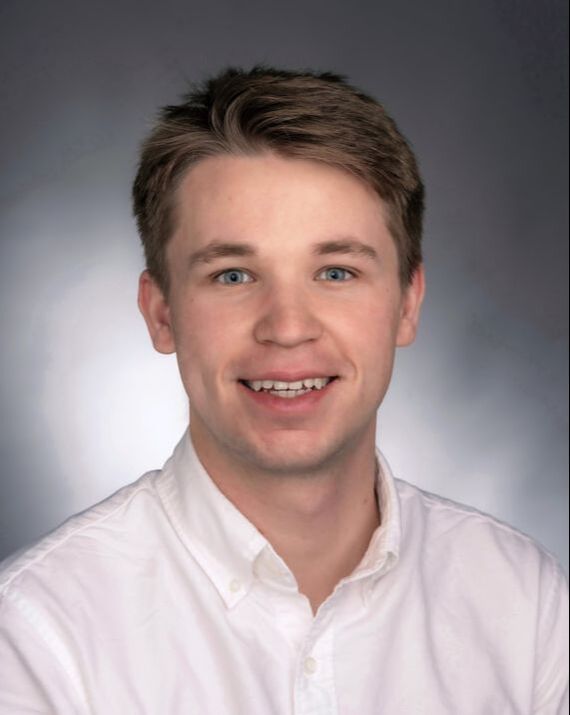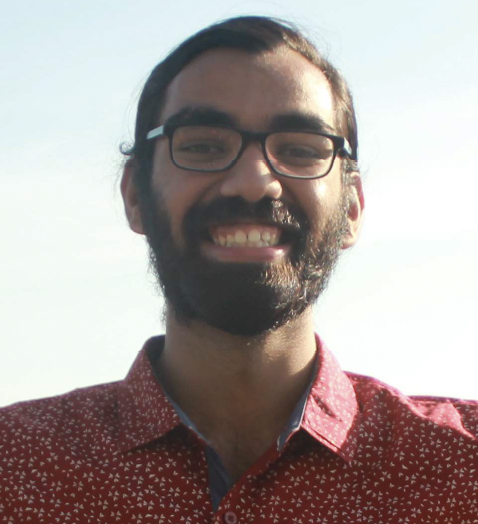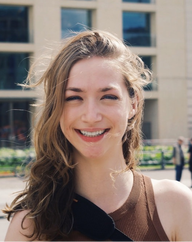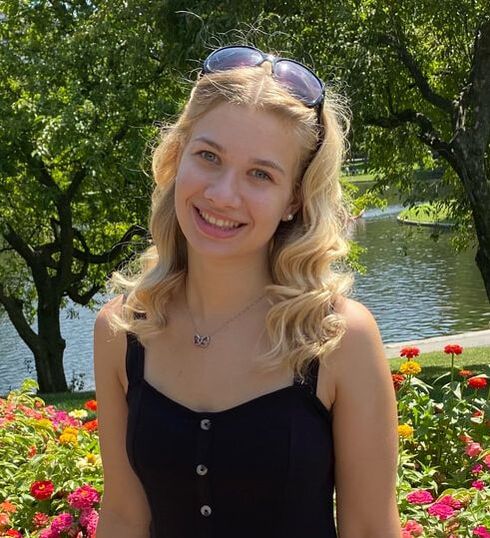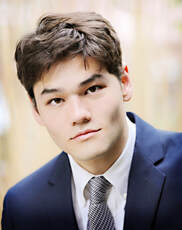Eric Smith, MD PhD
|
Cedric Louvet, PhDInstructorCedric Louvet earned his PhD in Immunology in 2004 at the University of Nantes, France. During his thesis work he identified and studied genes linked to allograft rejection and tolerance with the aim to reveal novel mechanisms of immunoregulation. He joined the Jeff Bluestone lab at UCSF (2005-2009) for his postdoc to focus on clinically relevant genetically-modified mouse models of autoimmune diseases (type 1 diabetes and peripheral/central neuropathies) and developed a strong interest in T cell regulation and in the therapeutic potential of their manipulation. Back in France, he developed a basic science project aiming at elucidating the role of novel ion channels in the RORgt+ family including Th17/ILC3s (type 3 immunity) as well as in the regulation of antigen presentation to T cells by dendritic cells. More recently, he is translating his expertise in basic immunology into the emerging field of anti-tumor T-cell therapy to investigate original gene-engineering approaches for the immunotherapy of cancer.
|
Tim Haggerty, PhDLab Manager/Senior ScientistTim graduated with a Bachelor of Science in Molecular Genetics from the University of Rochester. Tim then went on to earn his PhD from Brandeis University studying Molecular and Cellular Biology. He has a broad background working on cancer immunotherapy, autoimmune disease, and cancer. He has worked at small start up companies with less than 10 people, big pharmaceutical companies, and medium sized biotechnology companies. With over 30 years of experience as a bench scientist he has expertise in molecular biology, drug discovery (both small molecule and biologics), target discovery and validation, phenotypic screens, and cell biology assay development. Tim has a passion for cancer immunotherapy with experience in genetic engineering of T cells to express transgenic TCRs and CARs to recognize kill cancer cells. All of his experience has been in preclinical research and therapeutic discovery and development.
|
Kartika Venugopal, PhDPost-doctoral FellowKartika earned her master’s degree in 2014 at the University of California, Irvine where she identified novel protein interaction partners for a serine-threonine death receptor kinase, DRAK2, and elucidated its role in immunological tolerance and autoimmunity. She then pursued a Ph.D. at the University of Florida, where her thesis work focused on understanding DNA methyltransferase 3A (DNMT3A; an epigenetic modifier gene) mutations as a biomarker for enhanced response to anti-leukemic therapy and investigated its methylation independent function in preserving genome integrity during DNA replication and repair.
|
Elizabeth Carstens, MDFellowLiz earned a BS in Bioengineering from Rice University in Houston, TX. Afterward she went to University of Texas Southwestern Medical Center for her MD which she earned with Distinction in Research for work she completed at the National Institutes of Health with Adrian Wiestner MD PhD designing complement targeting antibodies. She then completed residency in Internal Medicine at the Johns Hopkins Hospital and now is at Dana Farber as a hematology/oncology fellow. Her scientific interest is in nucleic acid based immunotherapies in solid malignancies. She also enjoys backpacking, fly fishing and crafts.
|
Elliott Brea, MD PhDFellowElliott Brea earned his B.S. in Biochemistry and University of Illinois Urbana Champaign. He earned his MD and PhD at Weill Cornell Medical College where he joined David Scheinberg’s lab at Sloan-Kettering Institute investigating regulators of MHC-I and antigen presentation in tumors, along with development of TCR mimetic antibodies. He then went on to do his residency at Brigham and Women’s Hospital where he short tracked and is current a hematology/oncology fellow at Dana-Farber Cancer Institute. He is interested in developing CAR-T for lung cancer and other solid tumors along with strategies to identify novel targets for solid tumor CAR-T therapy. In his free time he enjoys running, exploring new places, eating good pizza, and bread making.
|
Edward Briercheck, MD PhDFellowEdward Briercheck earned his B.S. in Biology at the University of Toledo. He earned his MD and PhD at The Ohio State University where he joined Michael Caligiuri’s lab investigating mechanisms of human natural killer cell biology. He then did his internal medicine residency in the global health equity pathway Boston Medical Center. After residency he was Fulbright Scholar to Guatemala at the Instituto de Cancerología y Hospital Dr. Bernardo del Valle S (INCAN) where he worked on novel diagnostics for lymphoma as a member of the Global Health Equity Faculty Track at Brigham and Women’s Hospital and David Weinstock’s laboratory at the Dana Farber Cancer Institute. He then completed fellowship at University of Washington and Fred Hutch where he continued his collaborations with colleagues at INCAN in the laboratory of Edus Warren, studying Epstein-Barr Virus in NK/T-cell lymphoma. He is interested in low-cost diagnostics and developing novel therapies with the potential to be deployed in diverse clinical settings. In his free time, he enjoys spending time with his family, traveling, and trying (with varying success) and watching (always successful) a variety of sports. Ed is supported by the Enrich Biosystems Inc. Fellowship.
|
Joseph Pereira (Perry), PhD, M.S.Postdoctoral ResearcherJoseph earned his master’s degree developing high throughput screening strategies to identify novel MHC-I alleles at the La Jolla Institute for Immunology under Dr. Bianca Mothé and Dr. Alessandro Sette. He then earned his PhD in the laboratory of Dr. Christopher Hunter at the University of Pennsylvania, where he demonstrated that PD-1/PD-L1 interactions negatively select against effector Treg cells during primary infectious challenges, resulting in the formation of pathological inflammatory responses. He is currently co-mentored by Dr. Arlene Sharpe at HMS and Dr. Eric Smith at DFCI. His ongoing research involves the utilization of CRISPR/Cas9 screening technology to enhance novel CAR T cell treatments in context of various cancer models. Outside of the lab, he’s a gym rat, dog dad, and anime fan.
|
Chi-Yuan (Nesta) Zhang, PhDPostdoctoral FellowNesta earned his PhD degree in 2018 at the Shanghai Institutes for Biological Sciences, Chinese Academy of Sciences, where he used zebrafish model to study the role of TGFβ signaling in the emergence of nascent hematopoietic stem cells. He then joined Christian Brendel Lab at Dana-Farber to develop novel CRISPR-based gene therapies of Shwachman-Diamond Syndrome, a fatal inherited bone marrow failure syndrome. He moved to Smith Lab on 2023 to develop new CAR-T which have a more persistent effects on cancers. He is also interested in making CAR-T to be tolerant to chemotherapy. In his free time, he likes playing basketball but watching soccer. He is a fan of Boston Celtics and Kevin Garnett but unfortunately has never watched his idol playing in TD Garden.
|
Midas Seyda, MDFellowMidas earned his MD in 2018 from Hannover Medical School, Germany. He was trained in immunology at Christine Falk’s lab at Hannover Medical School with a focus on NK cell receptors in lung transplantation and later collaborated with Stefan Tullius at Brigham and Women’s Hospital in Boston working on inflammatory damage-associated molecular patterns, the T cell-dendritic cell axis in aging and senolytic therapies (2015-2018). Following his graduation, he completed his internal medicine training at Hannover Medical School with a focus on hematology and oncology. He is passionate about bringing immunological discoveries to patient care.
|
Neil Savage, PhDScientistNeil earned his B.Sc. in Molecular Biology at the University of Guelph followed by his PhD at McMaster University. His research focused on glioblastoma stem cells, employing genome-wide CRISPR screens to uncover genetic regulators and various immunotherapy modalities to target novel markers. Primary tumor tissue, flow cytometry and multiple mouse models were cornerstones to all projects. Always ready to try something new, his favorite activities include hockey, cooking, documentaries, and wine tastings. Even better when in combinations.
|
Ko-Wei Liu, PhDScientistKo-Wei Liu earned his master’s degree focusing on establishing high-throughput screening assay to characteristic IL-1 receptor activity at Academia Sinica in Taiwan. He then earned his PhD degree in 2022 at Dartmouth College studying fungal pathogenesis and innate immunity in Robert Cramer’s lab. He is currently working in Dr. Eric Smith lab as Staff Scientist focusing on preclinical cancer studies related to cell therapy. In his free time, he enjoys collecting LEGO, jogging, traveling and cooking.
|
Shahryar Khoshtinat Nikkhoi, PhDScientistShahryar obtained his M.Sc. in Biotechnology from Tarbiat Modares University, followed by a PhD from Rutgers University. His doctoral research was dedicated to the generation and characterization a bispecific killer cell, aimed at augmenting Natural Killer cell antibody-dependent cellular cytotoxicity (ADCC) against solid tumors. He possesses a strong passion for cancer immunotherapy, with a particular focus on Bispecific and Chimeric Antigen Receptor (CAR) therapies. Apart from his academic pursuits, he thoroughly enjoys spending quality time with his young daughter and indulging in the pleasure of reading books.
|
Doug RussoComputational BiologistDouglas holds a B.S. in Mathematics and Physics from Northeastern University and an M.S. in Statistics from Stanford University. His graduate research examined ancestry-specific effects among COVID-19 patients and the movement and admixture of Oceanic populations throughout history. His interests are in applied statistics and statistical learning for high dimensional and genomic data.
|
Emma BuceyResearch AssociateEmma graduated with her BS in Biomedical Engineering as a Commonwealth Honors College student in the College of Engineering at University of Massachusetts Amherst. At UMass, Emma worked on a capstone project where she created a multi-dose user activated transdermal drug delivery patch composed of alginate micro needle scaffolds to deliver small molecule hydrophilic drugs across the skin barrier. While completing the Biomedical Engineering program at UMass, Emma gained valuable knowledge about cellular and immunoengineering, both in coursework and through literature research. Now at the Smith Lab, Emma is excited to apply her biomedical engineering background and expand her knowledge on novel CAR T-cell therapies. Outside of the lab Emma enjoys spending time with friends and family, traveling, visiting new restaurants, and taking her dog on walks.
|
Sachiv ChakravartiResearch AssociateSachiv earned his BA in Public Health Studies from Johns Hopkins University. While attending Hopkins, Sachiv worked under Dr. Challice Bonifant, developing CAR-NK therapeutics for pediatric brain tumors, and Dr. Debraj Mukherjee, investigating operative outcomes for patients with malignant brain neoplasms. Now in the Smith lab, Sachiv is assisting Elliott Brea with the creation of novel immunotherapies for difficult-to-treat solid lung tumors. Outside of lab, you can find Sachiv playing at the park with his dog Nemo, visiting the New England Aquarium, and eating way too many bags of flamin' hot Cheetos.
|
Erin RosenbergResearch AssociateErin graduated from Villanova University with a B.S. in Biology and Cultural Studies. At Villanova, she completed an undergraduate thesis in the lab of Dr. Elaine Youngman, where she studied the regulation of Argonaute protein expression in C. elegans. After graduating, she moved to Philadelphia and continued to explore her interest in science and medicine. She worked in drug discovery for several years, both at GlaxoSmithKline (small molecule) and Integral Molecular (biologics). These experiences inspired her to continue her education at Boston University, where she is pursuing a M.S. in Medical Sciences. Outside of the lab, she enjoys running, hiking, and exploring Boston.
|
Conor HincheyResearch AssociateConor earned both his BS and MS degree from Northeastern University in the field of bioengineering, concentrating in Cell & Tissue Engineering. He had multiple co-op experiences while at Northeastern, including working in mammalian cell culture research at Repligen and in protein purification at Takeda, as well as having done stem cell research during roles at Cellarity and Sana Biotechnology. Through these experiences, he has found a keen interest in immunology-focused therapies that he is eager to explore more at DFCI. When he’s not at the lab, you can often find Conor watching movies, exploring new recipes to cook, or playing a variety of sports.
|
Ethan FullerResearch AssociateEthan earned his BS with Research Concentration in Biology from Gonzaga University. At Gonzaga, Ethan completed his thesis in the labs of Drs. Shannen Cravens and Laura Diaz-Martinez, where he investigated a novel DNA-based tool for use as a potential immune checkpoint blockade therapy. He additionally studied endogenous mechanisms of oncovirus genomic suppression in the lab of Dr. Lishan Su at University of Maryland Comprehensive Cancer Center. Now in Smith Lab, he is excited to apply his structural biology experience to the field of immune effector therapies. Outside of the lab, Ethan enjoys running, finding the best pizza spots, and exploring Boston’s history.
|
Abhishek MangipudiResearch AssociateAbhishek completed his bachelor’s degree in Chemical engineering at the National Institute of Technology, Agartala, India. Following this he earned his M.S. degree in chemical engineering at Cornell University. During his Master’s, he completed his thesis research under the supervision of Dr. Matthew Delisa. Working on developing a platform for finding high-affinity binders to glycans upregulated in cancer sparked his interest in understanding the applications of protein engineering techniques in cancer immunotherapy design. To further develop this interest, Abhishek joined the Smith lab as part of the Immunotherapy Platform for Antibody and Chimeric Antigen Receptor T (CAR T) discovery initiative – IMPACT. Here, working on screening novel bispecific antibodies and CAR T cell therapies against various cancer targets, Abhishek is building on his protein engineering background with a strong foundation in translational immunology. When not working hard in the lab, he can be found cooking gobsmacking food, watching a movie at the local AMC or strolling through the aisles of the nearest Trader Joe’s.
|
Evelyn MeslerResearch AssociateEvelyn earned her B.A. in Biology and German from Wesleyan University. Following her undergraduate studies, she was awarded support from the German Academic Exchange Service (DAAD) to pursue her M.Sc. in Infection Biology at the University of Lübeck in Germany. While in Germany, Evelyn conducted her thesis within Prof. Dr. Christian Karsten’s research group, focusing on the role of complement anaphylatoxin receptors in autoimmune disease. Evelyn’s master’s degree established her interest in immunology and in leveraging current scientific understanding to develop immune effector therapies. Now a part of the Smith Lab, Evelyn is looking forward to utilizing mRNA as a therapeutic tool in cancer treatment. When not in Longwood, Evelyn enjoys volleyball, skiing, and crafting with friends.
|
Isaac KarpovskyGraduate StudentIsaac completed his undergraduate education in biology and economics at Emory University, as well as his MS degree in cancer biology and translational oncology. Isaac worked on his master’s thesis in the lab of Dr. Greg Lesinski in co-mentorship with Dr. Chrystal Paulos, during which he designed highly persistent cell therapies against pancreatic cancer and explored the role of the tumor microenvironment in facilitating immune suppression. He is now enrolled in the biological and biomedical sciences (BBS) PhD program at Harvard University and hopes to continue developing cancer immunotherapies in Dr. Eric Smith’s lab. Outside of lab, Isaac tries to spend as much time outdoors or eating (or both). A Boston local, he is excited to be back home, spend time hiking the White Mountains in NH, and otherwise enjoys yoga, reading sci-fi, and listening to live music.
|
Alexis MottramResearch AssociateAlexis earned her B.S. in Chemical and Biomolecular Engineering from Cornell University. At Cornell, she worked in Dr. Cerione’s cell biology lab studying the effects of CD42 on aging. After graduating, Alexis worked on identifying novel targets for T cell lymphoma in David Weinstock’s Laboratory at DFCI. Through her experiences, Alexis has developed a strong interest in immunology and T cell therapies. She is excited to pursue these interests in the Smith Lab. Outside of lab, Alexis enjoys playing soccer, painting, and baking.
|
David Kennedy-YoonResearch AssistantDavid Kennedy-Yoon is currently an undergraduate pursuing a Bachelor of Arts in Music and Molecular and Cellular Biology at Harvard University. As an undergraduate research assistant in the Smith Lab, David is interested in the field of medical oncology and immunotherapies, especially the novel CAR T-cell therapies he is researching in the lab. Outside of the lab David enjoys playing the piano and organ, as well as performing comedy on campus.
|
Former Trainees
|
Melody Tan
Carlos Fernandez (MSKCC) Yunxin Chen (MSKCC) Urvi Shah (MSKCC) Mette Staehr (MSKCC) Reed Masakayan (MSKCC) Ishan Tatake (MSKCC) Abdulla Berjis(DFCI) |
PhD Program; University of Pennsylvania
Principal Investigator; Clinic Barcelona, IDIBAPS; lab page Instructor; Singapore General Hospital, Duke-NUS Medical School Assistant Professor; Memorial Sloan Kettering Cancer Center Postdoctoral Research Fellow; University of Southern Denmark Associate Scientist; AgenTus Therapeutics Internal Medicine Resident; Beth Israel Deaconess Medical Center, Harvard Medical School PhD Student; University of Pennsylvania |
HOME | RESEARCH | MENTORSHIP | PEOPLE | PAPERS/TRANSLATIONS | GIVE | JOIN/COLLABORATE
©2020 Eric Smith Lab at Dana-Farber Cancer Institute
©2020 Eric Smith Lab at Dana-Farber Cancer Institute

